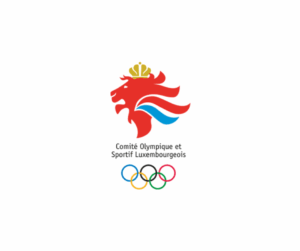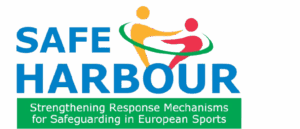The Comité Olympique et Sportif Luxembourgeois (COSL) is pleased to be a partner in the new Erasmus+ Project named “Strengthening Response Mechanism for Safeguarding in European Sports” (SAFE HARBOUR), which is coordinated by the European Olympic Committees EU Office (EOC EU Office). This initiative is dedicated to enhancing safeguarding mechanisms across European sport, creating safer environments for all.
About COSL

COSL is the umbrella organization for all Olympic and non-Olympic sports federations in Luxembourg, founded in 1912 and officially recognised by the International Olympic Committee (IOC). COSL represents and supports the national sports movement, promotes Olympic values, and oversees Luxembourg’s participation in international multi-sport events. Working closely with national sports federations, government bodies, and stakeholders like ALAD (Luxembourg’s National Anti-Doping Agency) – soon ALIS (Integrity Agency), COSL ensures ethical and fair sporting environments. Its key missions include developing sport and physical education, organizing Olympic participation, representing the sporting movement nationally and internationally, and promoting the social and educational values of sport. Strategically, COSL aims to protect the independence of sport, enhance elite and grassroots sports structures, encourage broad participation, support ethical practices, serve as a centre of expertise, promote voluntary work, and strengthen international relations.
The work of COSL on safeguarding in sports to date
Safeguarding is a top priority for COSL, ensuring that all athletes, staff, and volunteers operate in a safe, respectful, and inclusive sports environment. Since 2024, COSL has an officially certified Safeguarding Officer, designated as the primary point of contact for safeguarding concerns. To strengthen its safeguarding efforts, COSL has implemented key initiatives in prevention and education, including mandatory training sessions, awareness campaigns, and background checks for coaches and volunteers. Additionally, COSL has developed a national safeguarding framework in collaboration with its integrity agency, setting out clear policies and reporting mechanisms for addressing abuse, harassment, and misconduct. Victim support measures, including psychological, legal, and medical assistance, ensure that affected individuals receive the necessary care. Through these efforts, COSL remains dedicated to fostering a culture of safety at all levels of sport in Luxembourg.
The role of COSL within the SAFE HARBOUR project
Within the SAFE HARBOUR project, NOC Luxembourg will play a critical role in tailoring the European Response framework to its national context. Responsibilities include drafting a National Strategy to guide safeguarding actions, delivering mandatory training for the leadership and National Federations, and hosting a National Multiplier Event to raise awareness among stakeholders. Additionally, NOC Luxembourg will engage in peer-to-peer roundtables, contribute to thematic seminars, and disseminate the project results through various channels. By actively participating in all project activities, NOC Luxembourg will help ensure the successful implementation and sustainability of safeguarding measures.
Background information on the SAFE HARBOUR project
The SAFE HARBOUR project, short for “Strengthening Response Mechanisms for Safeguarding in European Sport”, is a 30-month project co-funded by the European Union through the Erasmus+ Sport Programme 2024. Coordinated by the EOC EU Office, the consortium includes Thomas More and Asser Institute as experts on safeguarding, human rights and law, 2 International Federations (International Biathlon Union and International Ice Hockey Federations), and 20 National Olympic Committees (Belgium, Bosnia and Herzegovina, Croatia, Cyprus, Czechia, Denmark, Germany, Hungary, Kosovo, Latvia, Lithuania, Luxembourg, Malta, Montenegro, Norway, Poland, Portugal, Romania, Slovakia and Slovenia). Additionally, the International Olympic Committee (IOC) is involved as an outside resource.
The project seeks to strengthen the capacity of European NOCs and Federations to address safeguarding concerns by identifying gaps, developing a European Response framework, and fostering collaboration. This framework will be adapted to national contexts, complemented by training and awareness initiatives to enhance safeguarding measures at both national and European levels. Therefore, SAFE HARBOUR aims to equip partner NOCs and Federations with the tools and confidence to implement effective safeguarding measures while establishing a robust support network for Safeguarding Officers and laying the groundwork for a future IOC Regional Safeguarding Hub.

![]()